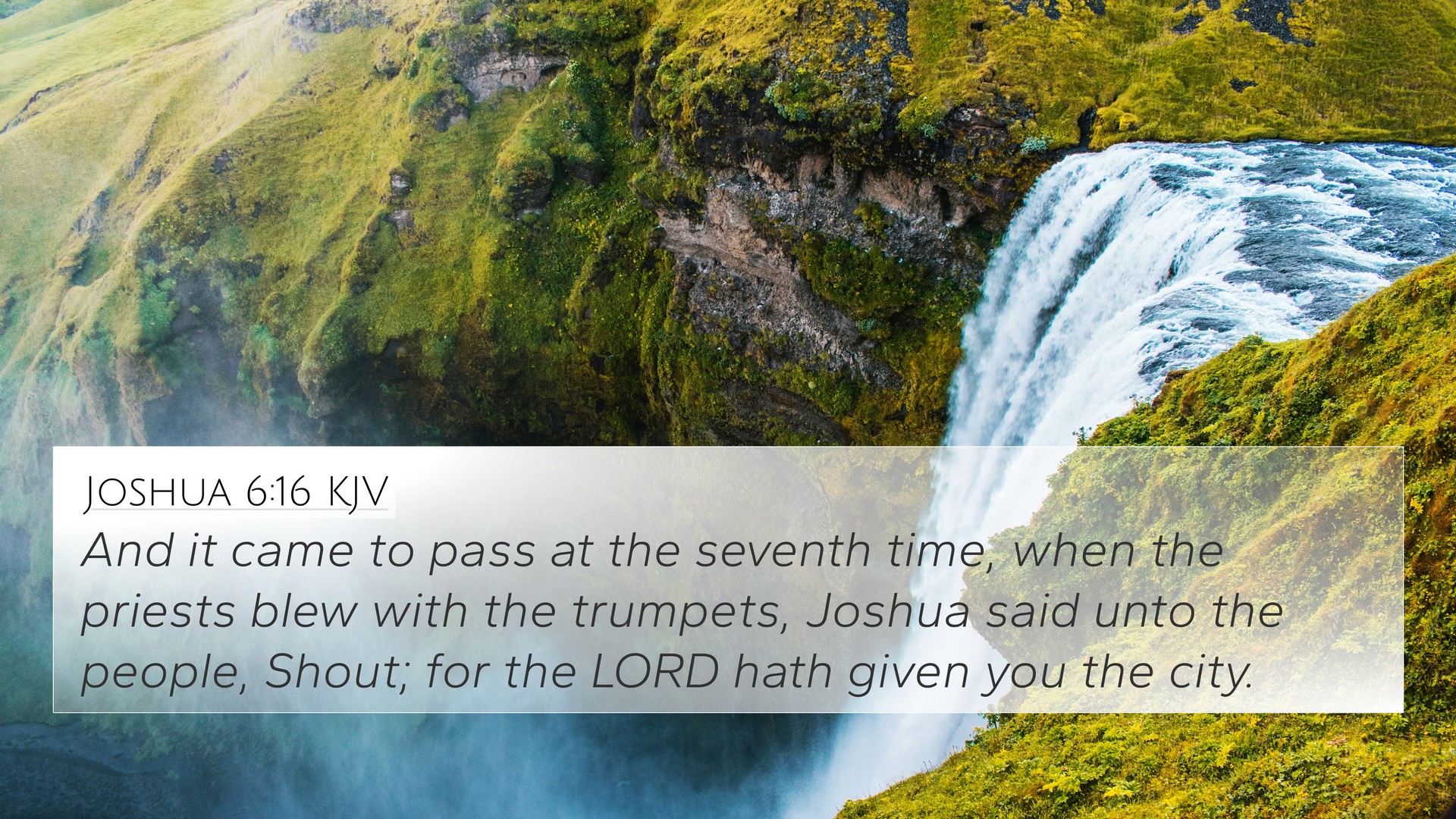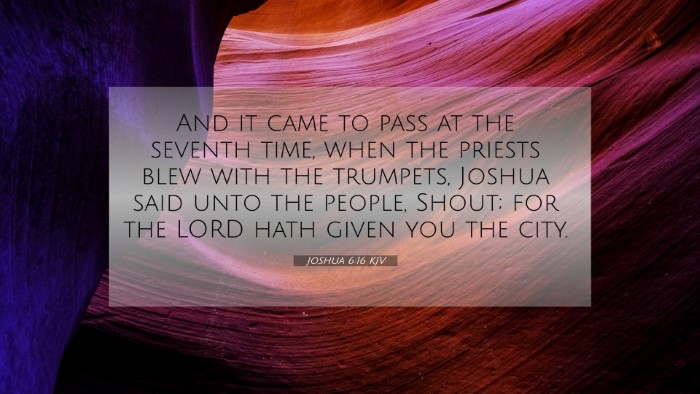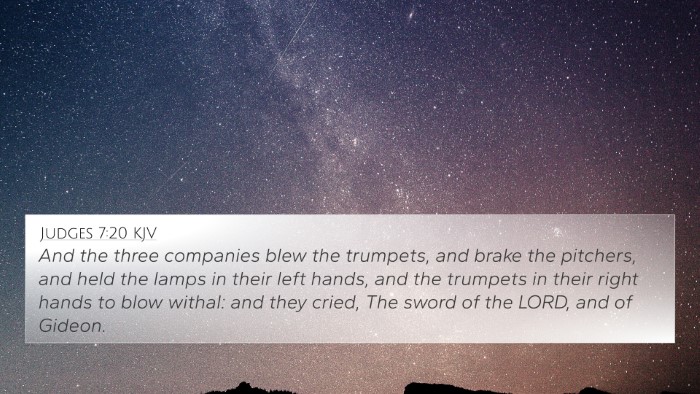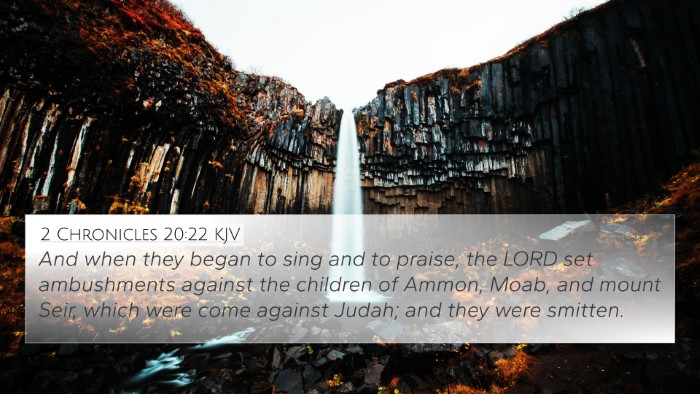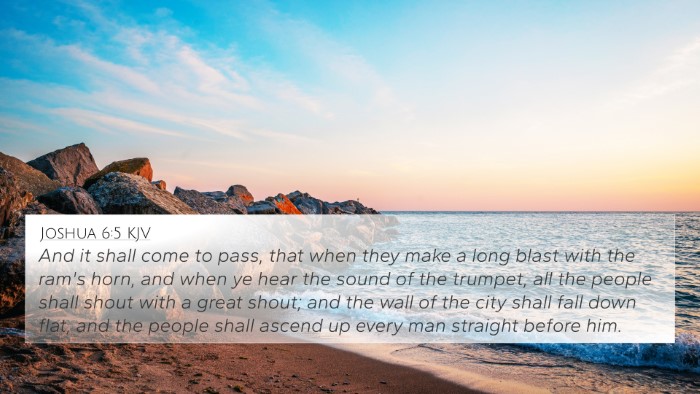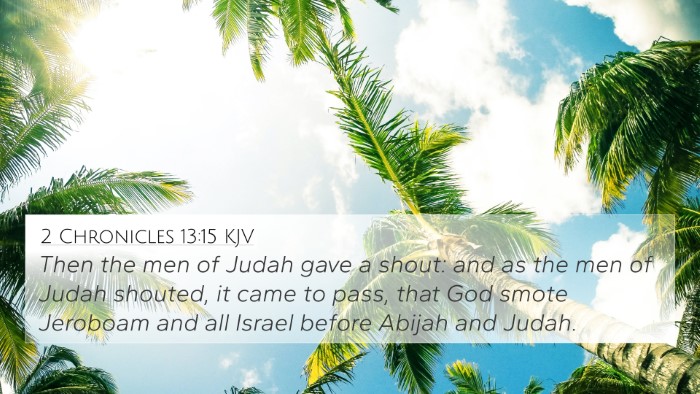Understanding Joshua 6:16
Contextual Overview: In Joshua 6:16, the narrative reaches a critical moment during the siege of Jericho. After marching around the city for seven days as instructed by God, the Israelites are commanded to shout when the time comes. This verse captures the moment of faith and obedience to God's plan.
"And it came to pass at the seventh time, when the priests blew with the trumpets, Joshua said unto the people, Shout; for the LORD hath given you the city."
Verse Meaning and Interpretation
The verse signifies a pivotal point in the Israelites' campaign against Jericho, emphasizing the power of faith and obedience. The act of shouting signifies the belief that God has already delivered the city into their hands. The trumpets, associated with worship and God’s presence, were a call to worship before victory was manifested.
Insights from Commentaries
- Matthew Henry: He points out that the command to shout came at the culmination of God’s instructions, showing the importance of divine timing and human response in spiritual victories.
- Albert Barnes: Barnes sees the act of shouting as a demonstration of faith. The people are to show their confidence in God's promise and power, even before the walls have fallen.
- Adam Clarke: Clarke emphasizes the significance of the priests blowing the trumpets, linking it to Israel's victory and the manifestation of God's glory. The shout represents not just anticipation but a celebration of faith and God’s promises.
Cross References
This verse can be linked to various other scriptures that further illuminate its meaning and importance in the biblical narrative. Here are some key cross-references:
- Hebrews 11:30: "By faith the walls of Jericho fell down, after they were compassed about seven days." This highlights the theme of faith leading to victory.
- Exodus 15:1: The Israelites sing praises after crossing the Red Sea, showing a pattern of worship before victory.
- Psalms 47:5: "God is gone up with a shout!" emphasizes the power and importance of proclaiming God’s deeds through loud celebrations.
- 1 Corinthians 1:27-29: God chooses the foolish things of this world to confound the wise, which relates to how God used what seemed foolish (the shout) to bring victory.
- Isaiah 54:17: "No weapon that is formed against thee shall prosper," connects with the theme of divine protection and intervention.
- Joshua 1:9: The encouragement to be strong and courageous mirrors the faith required in this moment to shout for victory.
- 2 Chronicles 20:21-22: Jehoshaphat’s army is commanded to sing praises before the battle, reiterating the theme of worship as a precursor to victory.
Connections Between Bible Verses
This passage invites readers to explore numerous connections, such as:
- Thematic Connections: The themes of obedience, faith, and divine intervention pervade both the Old and New Testaments.
- Celebratory Worship: Shouting and praising God as a means of expressing faith is found throughout scripture, linking Joshua's example with other instances in biblical history.
- Faith and Obedience: The link between faith and action is a recurring motif, seen in both Joshua's command and Jesus' teachings about faith.
Conclusion
In conclusion, Joshua 6:16 serves as a profound example of the intersection between human faith and divine power. The shout of the Israelites reflects their belief in God's promises and showcases the act of worship as vital in the journey of faith. Exploring the various connections and related verses enriches our understanding of this powerful moment in Israel's history, reinforcing the importance of faith-filled responses to God's directives.
Additional Study Resources
For deeper insights into cross-referencing biblical texts, consider utilizing tools such as:
- Bible concordances
- Bible cross-reference guides
- Resources for cross-reference Bible study
- Comprehensive Bible cross-reference materials
